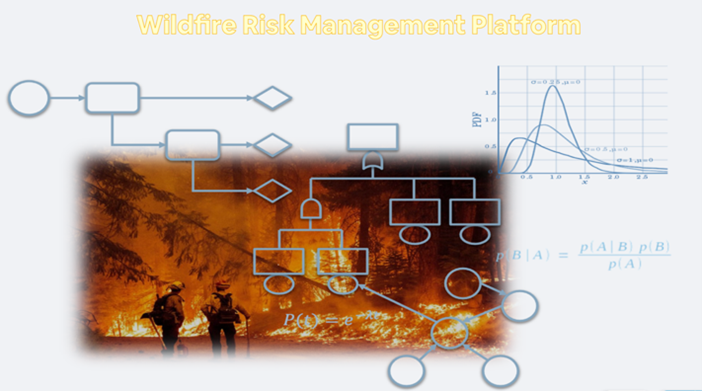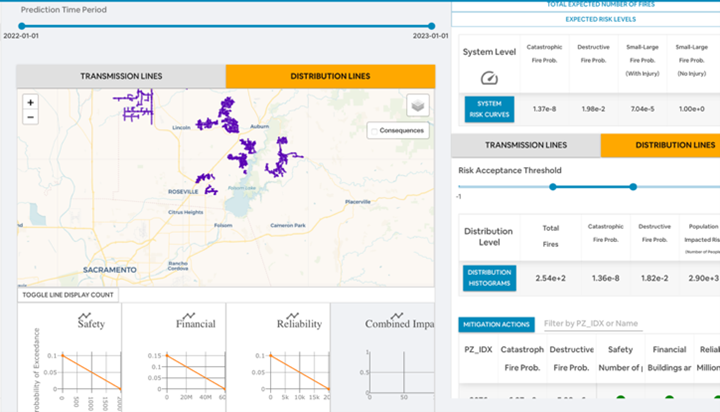Wildfire Probabilistic Risk Assessment
/Severe wildfires have become more prevalent and recent events have demonstrated the critical need for more advanced tools for wildfire risk assessment. In this project, we are developing the analytical methodology and tools based on Probabilistic Risk Assessment (PRA) to support the above objective.
This project presents an integrated methodology for the assessment of risks due to wildfires caused by equipment and vegetation failures in electrical distribution lines. The proposed method offers a scenario-based approach which is rooted in a fundamental and vastly popular risk theory and forms the basic platform for integration of techniques and models needed to identify the wildfire risk scenarios and quantify their probabilities. The backbone of the framework is the method of Hybrid Causal Logic (HCL), a multi-layered structure that integrates event sequence diagrams (ESDs), fault trees (FTs), and Bayesian Networks (BNs) and allows for the inclusion of computer simulation models for phenomenological events such as fire spread. As it is the case with nearly all quantitative risk assessments of complex open systems, there are significant uncertainties due to limitations of some critical data and state of knowledge about key phenomena, and uncertainties stemming from needed simplifications and approximations. The proposed methodology covers this important aspect in a formal and systematic way.




